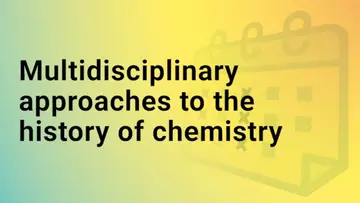Computational history of chemistry: challenges and achievements
Abstract
The growing volume of data and increased computing capabilities are transforming computational approaches into essential tools for historians. In addition to offering innovative solutions to historical inquiries, computational history allows for asking and solving novel questions related to large scale patterns. Chemistry, being the science with the highest publication output associated to its exponential growth of new substances and reactions, is is not lacking in data. Presently, this information is amassed in extensive electronic databases, placing a vast reservoir of knowledge at our disposal and providing numerous opportunities for computational analyses that illuminate the history of chemistry and the evolution of chemical knowledge. Here we summarise our findings on the chemical space, defined as the compilation of chemicals and reactions documented in scientific literature over the years.
The concept of chemical space holds a pivotal role in the history of chemistry, intimately tied to the material, social, and semiotic dimensions of the discipline, all of which contribute to the formation of chemical knowledge. Our results encompass: i) the consistent exponential growth of the chemical space for more than two centuries, prompting inquiries into the factors sustaining this growth; ii) the reliance on a select few substances and reactions to drive the expansion; iii) the crucial role of synthesis in broadening the chemical space; iv) the self-reinforcing processes establishing path dependencies in space expansion, resulting in a pronounced bias towards organic chemistry; v) the interplay between the chemical space and social factors such as World Wars and political tensions; and vi) the intertwine between the space and the historical development of fundamental chemistry concepts like the periodic system. We conclude by exploring unresolved questions and outlining challenges for the computational history of chemistry.
